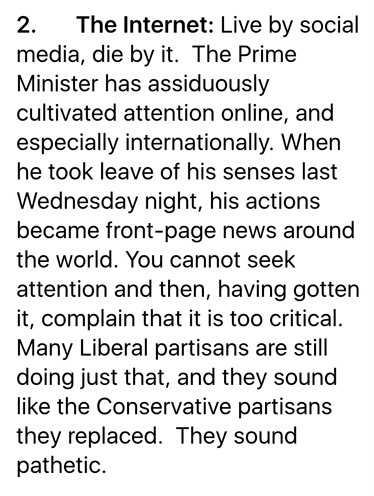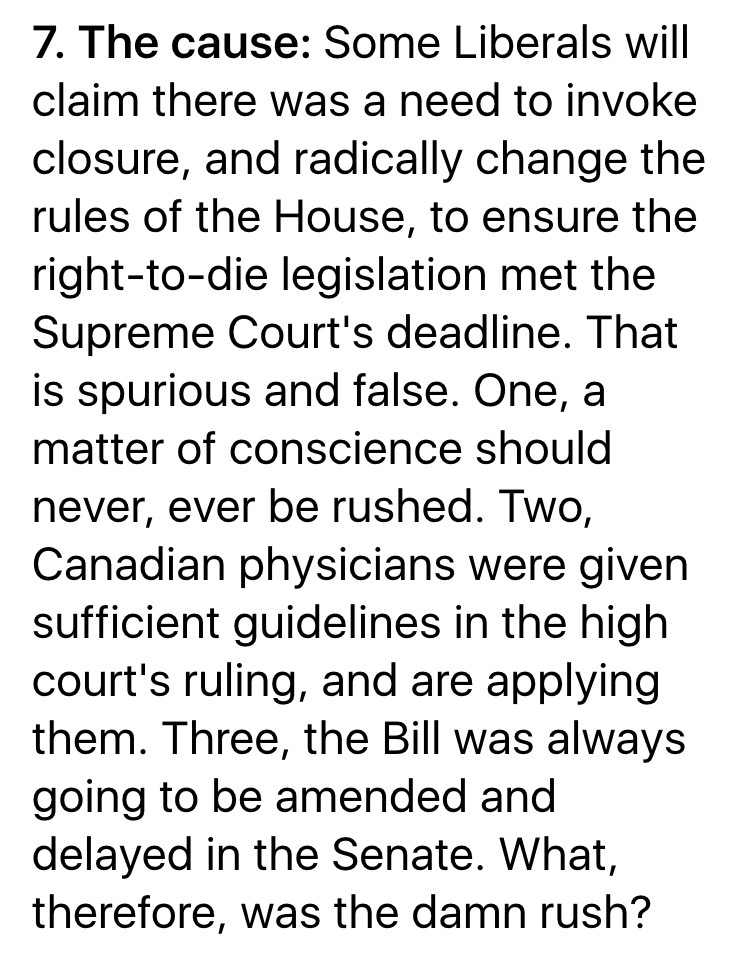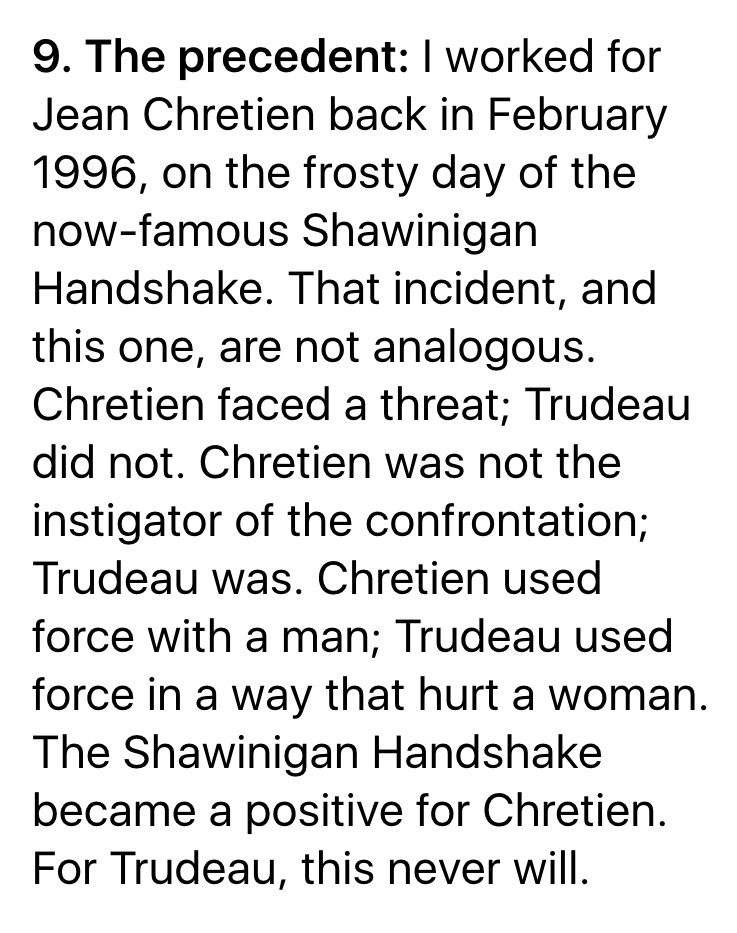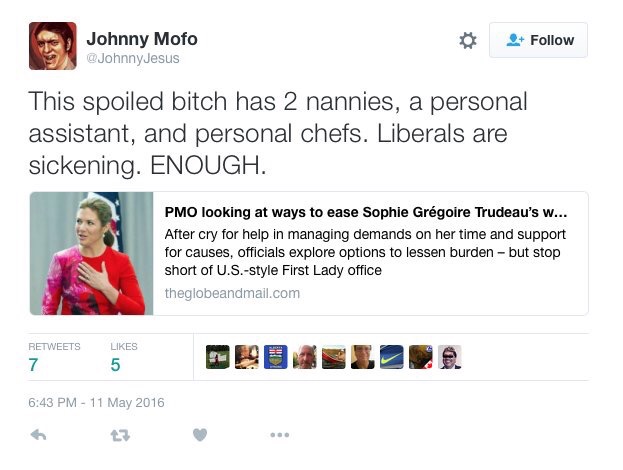Three points from my ten-point column on last night’s idiocy, plus the video
I just saw the full tape. It’s not great.
You never know who you’ll meet at these fancy dinner things
In this week’s Hill Times: beware sweet-talking writers bearing gifts, Trudeau folks
Meet Ben Rhodes, Deputy National Security Advisor for Strategic Communications to the President of the United States of America.
Or, as he was recently described in a headline in Foreign Policy magazine, an asshole.
That’s a quote. “Asshole.” Foreign Policy – that most revered and reserved of publications, the sine qua non of the U.S. diplomatic and bureaucratic classes, has called one of the most powerful unelected people on the planet an “asshole.” In a headline, too.
That’s not all. Foreign Policy also called Rhodes “an overweening little schmuck.”
In the days since the New York Times Magazine published a 10,000-word magnum opus about Rhodes, lots of other bon mots have been flung his way, too. That he’s an out-of-control egomaniac, that he’s a serial manipulator, that he’s an inexperienced adolescent – and, most ominously (for him), that he oversaw a Machiavellian conspiracy that “duped the American public into accepting a nuclear deal with Iran.”
That last one should give Rhodes and his boss and their respective lawyers pause, of course, because it nudges them perilously closer to what Dubya got with his imaginary weapons of mass destruction in neighbouring Iraq. You know: congressional hearings, threats of impeachment, an unrelentingly hostile media, a war-opposing African American in the White House, etc. etc. It was bad.
Obama and Rhodes are months away from the end of their tenure in the White House, however, so perhaps the Republicans and the press will give them a pass. The former is shortly heading off to write his memoirs and give pricey speeches, while the latter is heading back to what he did before. Which is, wait for it, writing short stories. (We’re not making this up. That’s what Ben Rhodes did, actually. He was a creative writing major when Obama recruited him to be a speechwriter on his 2007 campaign.)
But the Rhodes profile in the Times is a cautionary tale for political staffers everywhere, even in far-away Ottawa, Ontario. Because, in it, Rhodes gave writer David Samuels extraordinary access – and he was extraordinarily candid. Rhodes told Samuels, on the record, that the press corps are “27-year-olds…who literally know nothing.” He called the entirety of the foreign policy establishment – including Hillary Clinton – “the Blob.” He said he had created an “echo chamber” of talking heads who say “what we [have] given them to say.” He said some of his colleagues “can’t keep a secret for two hours.” He said – and, again, this is a quote – “I don’t know anymore where I begin and Obama ends.”
Sound familiar?
Sound, say, like not a few “senior strategists” who have blown into town on the wings of someone else’s election victory, achieved unprecedented powers, and then frittered it all away with an ill-advised sit-down with someone like David Samuels?
It happens all the time. A senior staffer succumbs to the siren song of some scheming media inquisitor – You’re so influential! The bureaucracy and caucus respect you so! How did you get so close to The Leader? Was that your words I detected in that wonderful speech/policy/year-end interview? – and, inevitably, they come to profoundly regret it. The newspaper containing the profile piece thuds against their door early one morning, they shuffle to get it in their slippers, they scan it, they frown. They start frantically texting friends: “Do you think it’s bad? Does it create a problem for the boss? Should I demand a correction?”
Take my word for it, having previously taken a celebrated trip to the burn unit, myself: it’s almost always bad. It creates a problem for the boss. And a correction won’t undo the damage.
It doesn’t matter if the profile is highly critical, or highly laudatory, either. If it’s critical, the staffer will anger the boss, caucus and colleagues. If it’s too complementary – as in the Rhodes case – it stirs up jealousy and anonymous back-biting. Either way, it’s not good.
In the Harper era, few staffers would be foolish enough to agree to Rhodes-style profiling, so few ever did. The boss didn’t like it, at all.
In the Trudeau era, the press profile pendulum has swung wildly in the opposite direction: the new crew are big fans of behind-the-scenes stuff, to the extent that we know more about them than we do about most members of cabinet. No major decision seems to go unaccompanied by a subsequent tell-all about the strategic machinations that preceded it.
Is that ever a good idea? Well, ask Ben Rhodes. After the New York Times Magazine published – and after Foreign Policy started to call him an asshole – Rhodes disappeared. Vanished. His colleagues in the press office, meanwhile, started hand-delivering doughnuts to the media. Asked about what Rhodes said, White House press secretary Josh Earnest admitted that Rhodes would now “say it differently if he had the chance.”
Ben Rhodes won’t get the chance. He’s done like dinner. So, remember the cautionary tale that will forever be appended to his name, Ottawa staffers.
To make it easy, you could clip that Foreign Policy headline, and pop it in your wallet.
You know, the one calling the super-powerful, super-influential, super-smart advisor “an asshole.”
Michael Chong
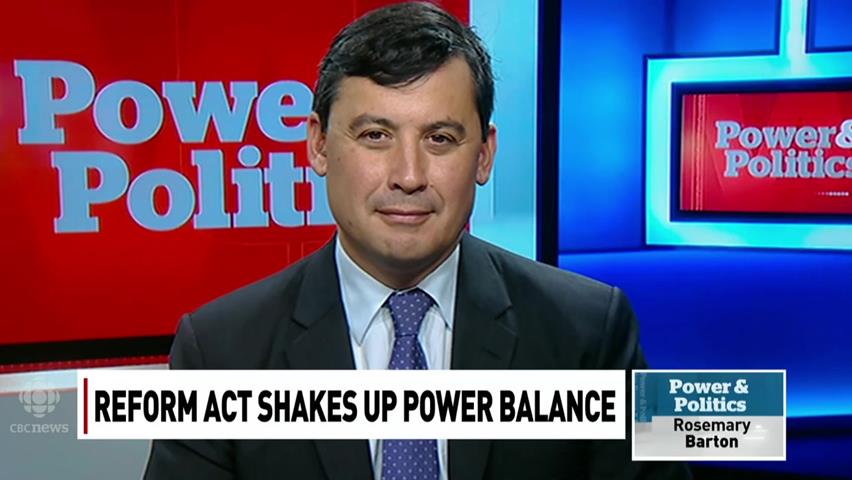
I’ve met this guy, talked to him, listened to him. He’s the only Conservative Party leadership candidate who could hurt Justin Trudeau, full stop.
There may be candidates-to-be who could do that, but he’s the only one so far. Watch this guy.
Madness
When something this horrible happens, we need to stop, and carefully assess whether we – and our elected leaders, and the police, and everyone else who is paid to pay attention – are doing what needs to be done.
Don’t just ignore this, don’t turn the page. Contact your representatives, and ask them: what are you doing about this? What are doing to ensure this never happens again?
How do you war room Donald Trump?
I’ve seen some of you say it can’t be done. He can’t be shamed – there’s nothing that will diminish the enthusiasm of his supporters.
Here’s this morning’s New York Times on what he plans to do:
War rooming Donald Trump, then, is a very, very important task. He plans to viciously go after his opponent – so what is she to do?
I have strong views on this subject. I firmly believe any war room – with the right people, the right message, the right strategy and total discipline and commitment – can take down anyone, and particularly a creep like Trump. (And they can defend a candidate like Hillary, too.)
What’s your take? Where would you focus, to attack and defend?
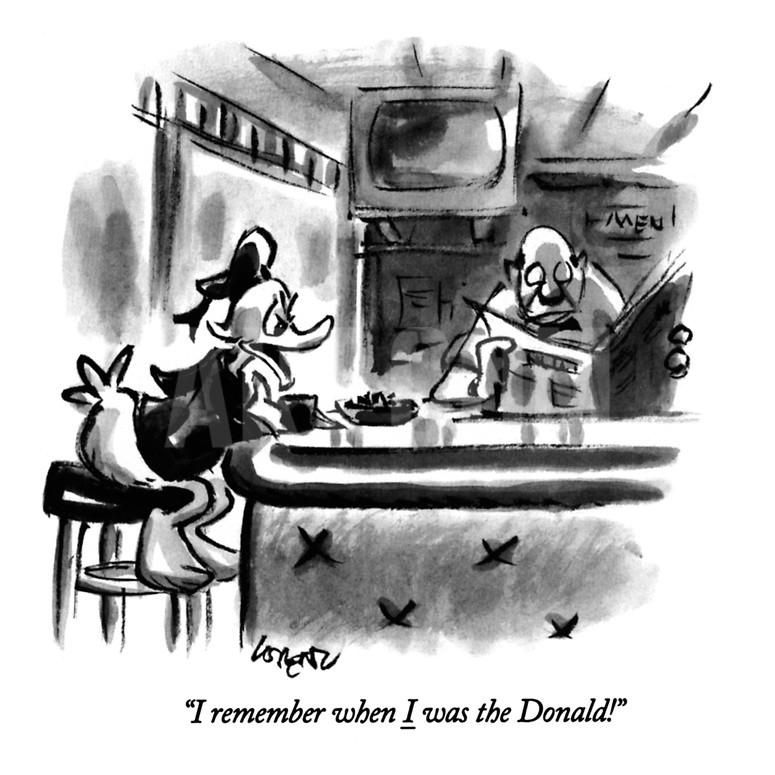
Raptors beat the Heat!
https://vine.co/v/i0A6OzX1jFA


